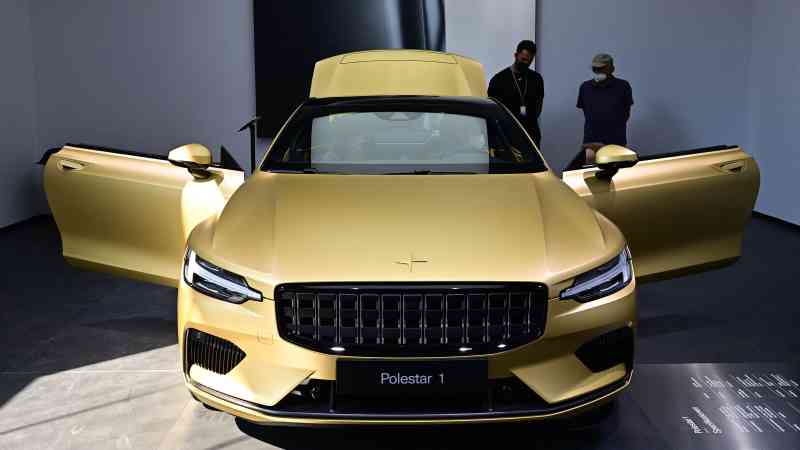Loses at Polestar narrowed to $242 million in the second quarter of this year, from $274 million previously, as it continued to struggle amid fierce competition and a slowdown in demand.
The electric vehicle manufacturer said that a 17 per cent fall in revenue year-on-year to $575 million had been caused “mainly” by lower global vehicle sales and higher discounts.
Polestar delivered a total of 13,150 cars in the quarter, up considerably from the first quarter but down by 16.6 per cent on the comparable three-month period in 2023.
Despite the falls in sales and output, Polestar’s shares jumped by 14 cents, or 14.7 per cent, to $1.08½ in afternoon trading in New York, driven up by news of a second-quarter gross profit margin that was much better than analysts had feared.
“They are improving their gross margins and on a relative basis they have much better margins than Rivian, Lucid or VinFast, so that’s encouraging,” Andres Sheppard, a Cantor Fitzgerald analyst, said. Polestar’s gross margin swung to -0.7 per cent in the three months to the end of June, from 0.1 per cent a year earlier, but Sheppard said that was far above analysts’ expectations for -6 per cent to -7 per cent.
The carmaker also announced further funding, via a $300 million bank loan, to take it to its target of securing $1.3 billion of external funding, which also pleased investors.
It said it “remains confident” of a stronger second half in 2024, particularly in the fourth quarter as sales of its two premium SUV brands, which have just started deliveries in some key markets, increase. Over the first half of the year, sales fell by more than a quarter to $918 million.
In an effort to evade American tariffs on Chinese-made electric vehicles, Polestar said it had started production of the Polestar 3, its luxury SUV, in South Carolina, with the first cars produced at the American plant expected shortly. Previously, the Polestar 3 had been assembled in China.
The end of subsidies in key markets, along with increasing competition from new entrants in the market from China, has driven down the demand for electric vehicles. In Britain, most electric vehicle-related grants were phased out in 2022, although those buying such models through a business as a company car or under a salary sacrifice scheme can benefit from generous tax incentives.
According to figures from the Society of Motor Manufacturers and Traders, the trade body, electric vehicle production in the UK fell by 7.6 per cent year-on-year in the first half of 2024 to 157,224 units compared with the same time previously.
Polestar’s results were announced along with the departure of Thomas Ingenlath, 60, its founder and chief executive, who will be replaced by Michael Lohscheller, 55, a car industry veteran.
